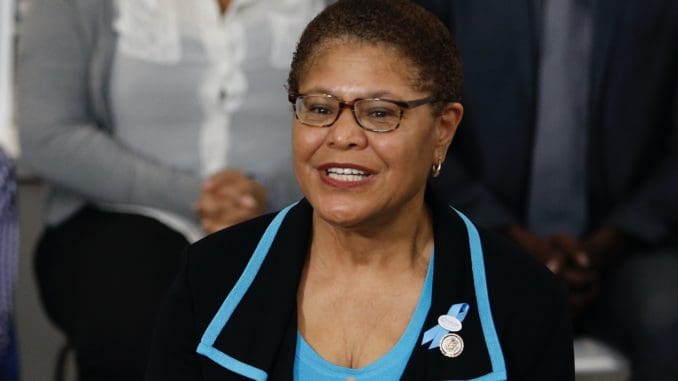
President Joseph Biden signed the bipartisan Infrastructure Investment and Jobs Act into law, which includes a hiring provision authored by Congresswoman Karen Bass that will allow agencies like L.A. Metro to prioritize the hiring of local Angelenos for projects that are taking place in their own backyard. The provision also applies to highway construction projects.
This is a very strong step forward for public transit and traffic reduction.
“If there’s a transit or highway project that’s being paid for by local taxpayer dollars in West Los Angeles, West Los Angeles residents should be able to be first in line to get the jobs that are being created. With the local hire provision signed into law, they can be,” said Rep. Bass. “As our economy recovers from this crushing pandemic, we need to ensure that we are coming back better than before and stronger than before. We’re bringing thousands of well-paying jobs to Los Angeles and putting tax dollars back into the communities that paid for the projects in the first place.”
“Representative Bass has been a champion on the issue of local hiring preferences in Los Angeles for many years and we couldn’t be happier that she was able to secure this legislative language in President Biden’s national infrastructure bill,” said L.A. Metro CEO Stephanie Wiggins. “This important provision allows us to use federal funds to hire a workforce that reflects our local communities who will directly benefit from future major construction projects and job opportunities, and ultimately returns tax dollars back to our local communities.”
Federal regulations have barred transit agencies that receive any federal assistance from implementing local hire policies for certain projects. Limiting these transit agencies from being able to adopt local hiring policies when making hiring decisions hinders their ability bring jobs to local communities, which is detrimental to local economies.
This provision will: Allow state and local agencies to more easily generate employment and economic development in their own states and counties;
Limit the regulations and burdens placed on local governmental agencies; and
Preserve the competition and cost-effectiveness mandates in our current rules that govern federal transit grants.
Zach Seidl


Be the first to comment